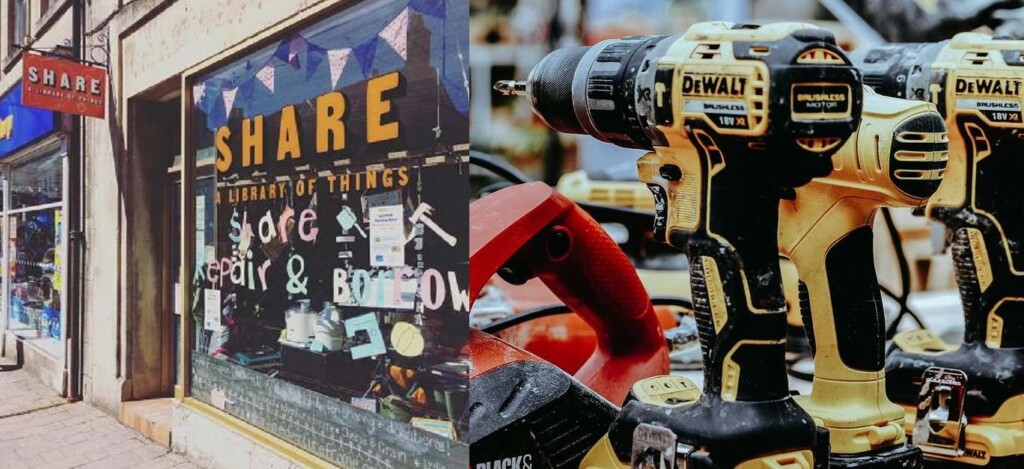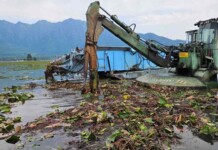
Does your two-year-old need a winter coat for a skiing holiday that they will outgrow before the following winter? What if there’s a cosmic phenomenon that’s taking place you want to see but you have no interest in owning a telescope? Have you ever thought about taking up photography but felt a $1,000 camera investment was risky?
A new retail phenomenon is addressing concerned consumers who are looking to escape spending for waste creation by developing a concept called a “library of things” (LoT) where people can come and rent just about anything, from baby clothes to air fryers.
There are over 2,000 LoTs located in the English-speaking world and Central Europe, and some have been in operation since 1976. Half of them though only sprang up in the last five years.
E-waste, or the tossing of electronic items without repairing them, has become a real challenge for landfills and recycling companies around the world, as has ‘fast fashion’—the world of low-cost, kitchy, or single-use garments and textiles which have piled up in landfills.
If you find yourself frustrated with this kind of throwaway culture, perhaps it’s time to check if there’s a LoT near you.
Every LoT will have different regulations and systems, but essentially the concept works by setting up an account and paying a rental fee for each day or month in which you check out one of their items. The cost may vary based on season (gardening equipment might be more costly to rent in summer) or availability.
MORE CONSUMER STORIES: Flood of ‘Right to Repair’ Bills For Autos, Phones, and Tractors Equals DIY ‘Watershed Moment’
“In summer we see a lot more garden items being used: strimmers, hedge trimmers, lawn mowers, tents for adventuring, ice cream makers, and gazebos for barbecues,” Rebecca Trevalyan, co-founder of an LoT in London, told the Guardian.
“We really want to make rental go mainstream, make it more affordable, convenient and socially rewarding than buying something from Amazon.”
OTHER WAYS TO REDUCE WASTE: These Baby Shoes Dissolve In Water After Your Infant Outgrows Them, Saving Space in Landfills
The list of product classes that seem to lend themselves to this sort of a rental model is significantly extensive, and in every case, one can imagine buying an item only to use it two or three times before deciding whether going through the trouble of selling it second hand or binning it.
“We have items that have been used more than 300 times by more than 200 different people,” Gene Homicki, co-founder of LoT organizer myTurn, said in a recent podcast interview. “Some examples of “radical reuse” from Libraries of Things on our platform include a DeWalt table saw that has been loaned out 321 times to 211 different people… and tents and camping sleeping pads that spent over 250 days in use in the last year”.
YOU MAY ALSO LIKE: German City Diverts Goods From Landfills, Repairs Them, Then Sells in ‘Department Store for Reuse’
Camping equipment, sporting goods, fast fashion and acessories, baby clothes, baby supplies, gardening equipment, beach supplies, tools, machinery, all manner of toys, home electronics, specialty cooking pieces, extra furniture to accomodate visitors, pet supplies, classroom supplies, hobby supplies, musicial instruments, fitness equipment, optics, and probably others, can all be kept out of the landfill by first admitting that we’re not sure if we will use the product more than a few times, and then going to an LoT to rent it.
Most LoTs will also permit renters to buy outright the products they have checked out, making the service ideal for an adult looking to try out a new hobby, or a child who wants to get into a sport (we all know how fickle children can be).
SHARE This Great Consciouss Consumer-Driven Solution To Waste…





















The one by our house even has seeds they sell in the spring for planting. Theres a whole drawer of different packets.